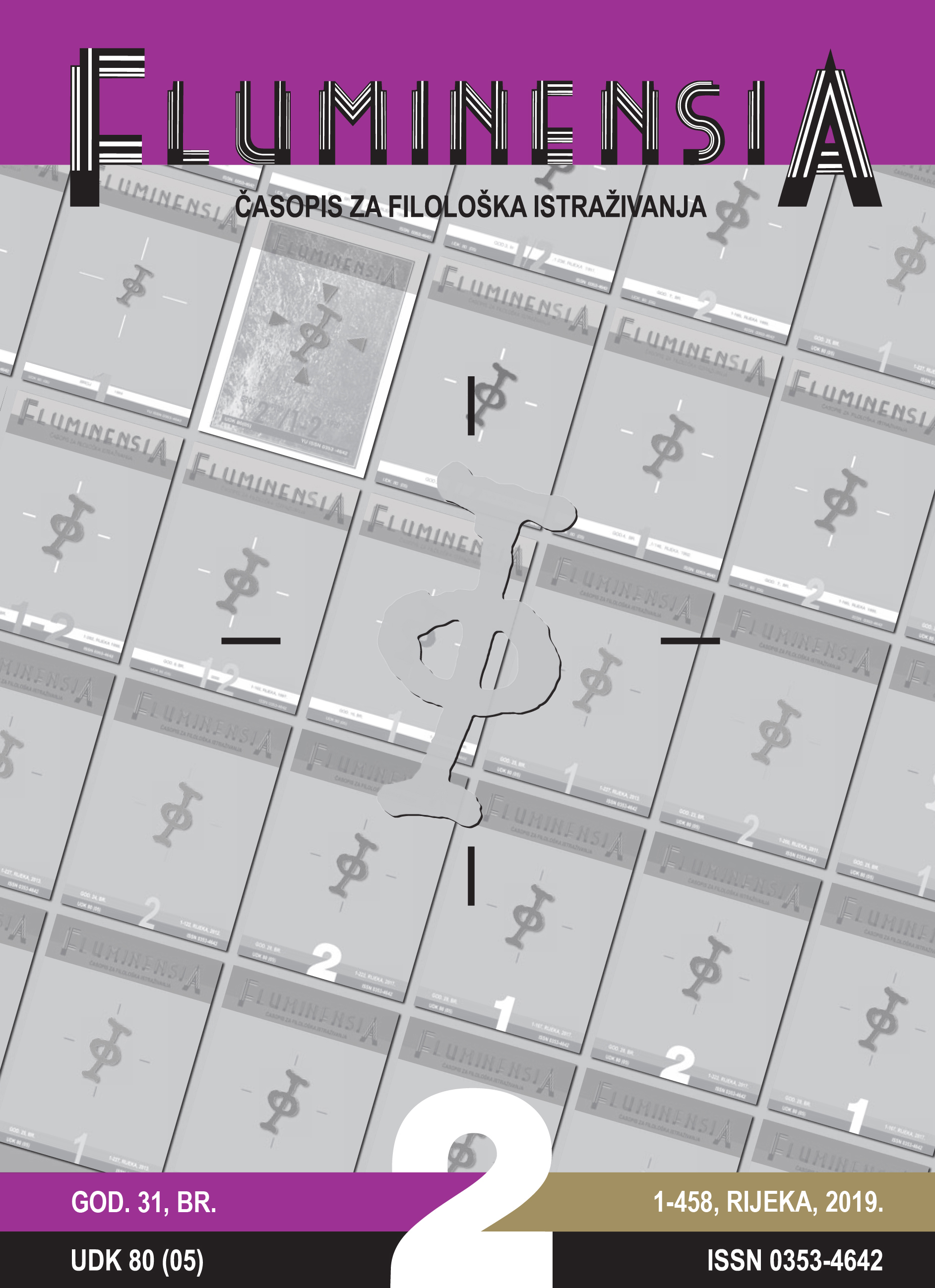Nomen est Omen. Contrastive Analysis of Croatian and English Phrasemes With an Onymic Component
Keywords:
Croatian language, English language, phraseme, phraseology, contrastive analysis, proper nameAbstract
In this paper we analyse Croatian and English phrasemes with an onymic component, which can either have a status of a toponym, an ethnonym, or an anthroponym. The aim of the paper is to determine the similarities and the differences between Croatian and English onymic phrasemes using contrastive analysis. Additionally, Croatian and English are observed as two spatially and genealogically distant languages. This is done in order to identify the differences and peculiarities conditioned by cultural, social, political, historical or some other features. This paper compares two cultures with different histories and sociolinguistic backgrounds, one Anglo-Saxon, the other Slavic. The analysis has shown that phrasemes with onymic components can be divided into three groups. The first group consists of corresponding Croatian and English onymic phrasemes, which means both phrasemes contain an identical proper name, lexically as well as structurally equal phrase, and the same motivation for the figurative meaning, i.e. background. The second group consists of phrasemes that contain an identical proper name but are partially different in phrase structure. The last group consists of Croatian and English phrasemes that share the same meaning, but differ in phrase structure, the onymic component, and background. The analysis has revealed that the third group was the largest (57,4%). It can be concluded that phrasemes with an onymic component represent not only human traits and life adventures, which are mostly metaphorically mirrored through the prism of historical, biblical, and mythological personalities or events, but that such phrasemes also complement and enrich phraseology of many languages, thus bringing together and strengthening the (shared) history of their nations and cultures. In addition to phrasemes common to numerous languages, national phrasemes are extremely valuable because they are a reliable indicator of the peculiarities of a nation from which they originate, and their constituent elements reflect the customs, beliefs, experiences, but also the perception of other nations and their specificities.

